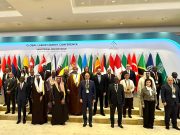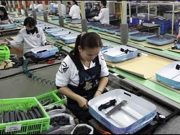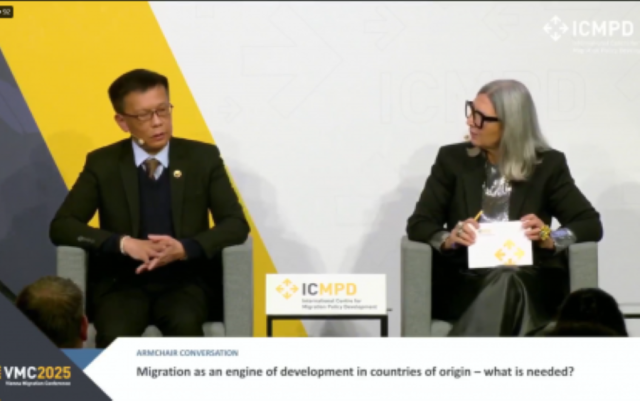VIENNA — The Philippines received international acclaim Wednesday for its leadership in ethical labor migration, with officials highlighting a rights-centered framework that prioritizes protection, empowerment and reintegration of overseas Filipino workers.
Migrant Workers Secretary Hans Leo Cacdac, speaking on a high-level panel at the 10th Vienna Migration Conference, said the country’s approach rests on three pillars that support workers before departure, during deployment and upon return.
“The Philippines’ development policy is not exporting labor, but rather, the OFWs themselves are the ones who create employment opportunities abroad,” Cacdac told delegates. He emphasized that Filipino workers’ reputation for compassion and diligence drives demand, while government policy ensures deployment is “rights-based, welfare-focused and development-oriented.”
Cacdac traced the nation’s commitment to a 90-year-old constitutional clause protecting labor, first enshrined in 1935 and reaffirmed in later versions. “We’re one of the first, as I understand, to put this in our supreme law,” he said.
The Department of Migrant Workers operates quick-response welfare mechanisms, ethical recruitment standards and lifelong learning programs in digital literacy, language proficiency and global certifications. “Preparation is protection,” Cacdac said. “When workers are skilled and informed, they are empowered.”
He cited decades of bilateral agreements with host countries dating to the 1970s, including Saudi Arabia, Kuwait and ASEAN partners, that advance safe mobility and ethical recruitment.
Delegates praised the Philippines as “a superpower among labor-sending countries” and a model for humane, sustainable migration governance. Cacdac said the recognition underscores Manila’s growing influence in shaping global standards that preserve migrant dignity and foster inclusive growth.











